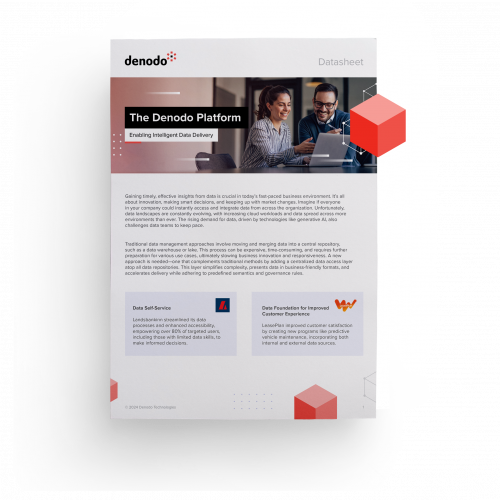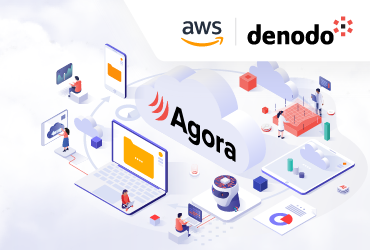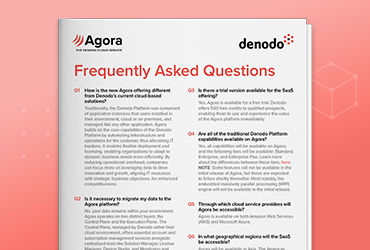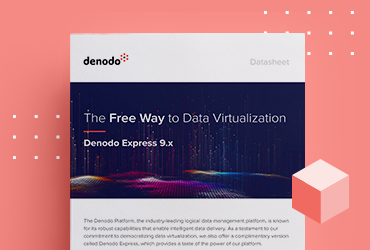Gaining timely, effective insights from data is crucial in today’s fast-paced business environment. It’s all about innovation, making smart decisions, and keeping up with market changes. Imagine if everyone in your company could instantly access and integrate data from across the organization.
A new approach is needed—one that complements traditional methods of data integration by adding a centralized data access layer atop all data repositories. This layer simplifies complexity, presents data in business-friendly formats, and accelerates delivery while adhering to predefined semantics and governance rules.
This Denodo Platform datasheet includes:
- The logical approach to data management
- Denodo Platform differentiators
- Customer case studies
- Comparisons of subscription tiers
- Capabilities





